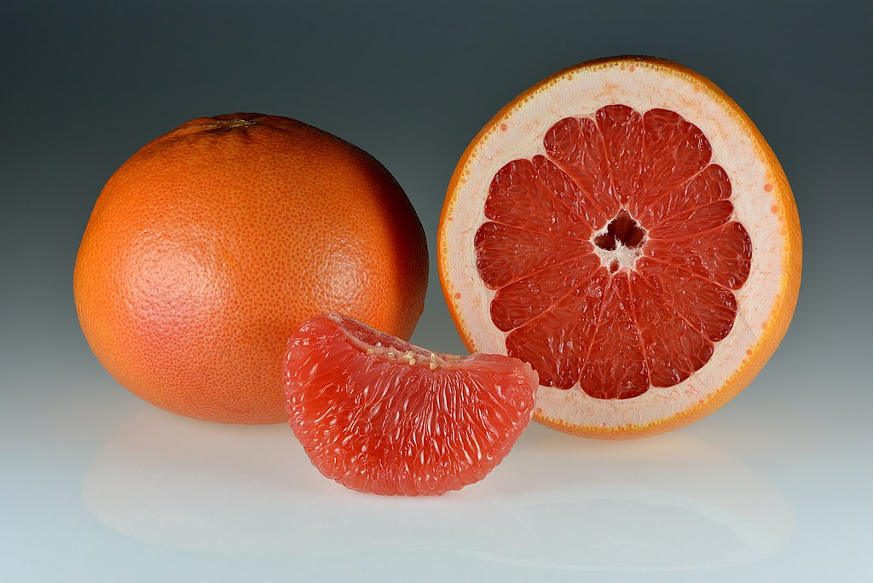Grapefruit Peel - Strong Material
Security doors and safes typically are made of heavy armored steel. Thinking outside the box, British scientists considered the strong, light-weight nature of grapefruit rind. This white layer, common in citrus fruits, has an open structure of spongy fibers, yet protects the insides. The researchers teamed this concept with the strength of abalone shell and the result is a unique material which resists cutting.
The manufactured product consists of a metallic aluminum foam matrix filled with small alumina-ceramic spheres. Now, suppose one drills into this material or uses a grinding tool. The small embedded spheres are moveable and they respond with rapid vibrations against the blade. The force of the cutting tool is turned back upon itself and the drill or blade is rapidly blunted. The references show short video clips of the failure of cutting tools. High-pressure water jets also fail to penetrate the aluminum casing because the spheres spin and disperse the water stream.
The only way to break through the casing is by high-temperature melting. One downside would be the loss of a key or combination with no easy way to open the structure. You are permanently locked out!
The strong, light-weight material is named Proteus after the shape-changing god from Greek mythology. The product may prove useful for bicycle locks, security doors, light-weight armor and protective equipment in heavy industry.
Grapefruit skin and abalone shell lead the way to engineering inspiration. Biomimicry is the discovery and application of such useful ideas from nature. Every example displays the intelligent design of the Creator of the universe.

Szyniszewski, Stefan, and Miranda Anderson, 2020, Abalone shells and grapefruit inspire the first manufactured non-cuttable material, Durham University publication.
https://phys.org/news/2020-07-shells-grapefruits-non-cuttable-material.html
https://www.nature.com/articles/s41598-020-65976-0.